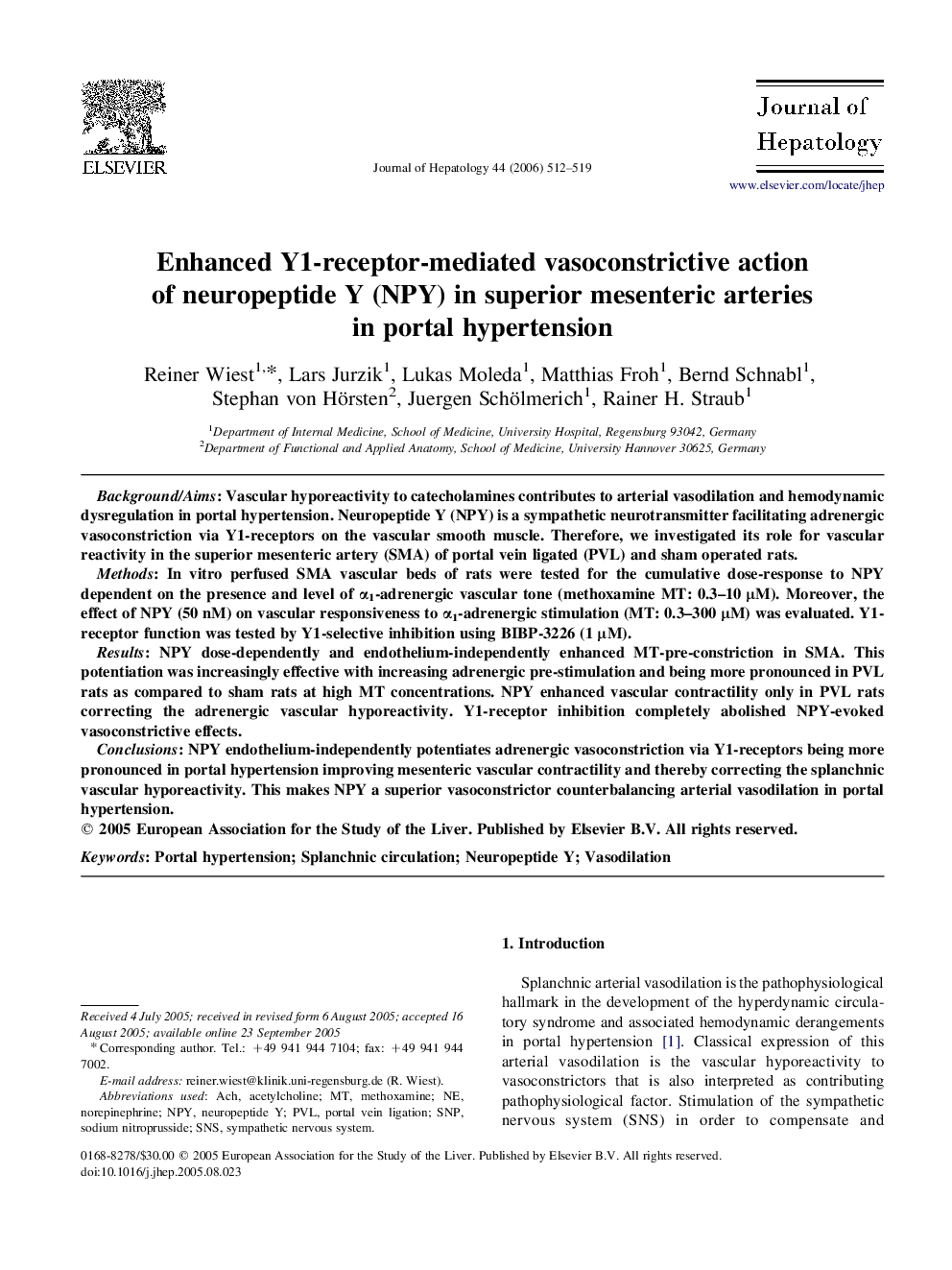| Article ID | Journal | Published Year | Pages | File Type |
|---|---|---|---|---|
| 3314973 | Journal of Hepatology | 2006 | 8 Pages |
Background/AimsVascular hyporeactivity to catecholamines contributes to arterial vasodilation and hemodynamic dysregulation in portal hypertension. Neuropeptide Y (NPY) is a sympathetic neurotransmitter facilitating adrenergic vasoconstriction via Y1-receptors on the vascular smooth muscle. Therefore, we investigated its role for vascular reactivity in the superior mesenteric artery (SMA) of portal vein ligated (PVL) and sham operated rats.MethodsIn vitro perfused SMA vascular beds of rats were tested for the cumulative dose-response to NPY dependent on the presence and level of α1-adrenergic vascular tone (methoxamine MT: 0.3–10 μM). Moreover, the effect of NPY (50 nM) on vascular responsiveness to α1-adrenergic stimulation (MT: 0.3–300 μM) was evaluated. Y1-receptor function was tested by Y1-selective inhibition using BIBP-3226 (1 μM).ResultsNPY dose-dependently and endothelium-independently enhanced MT-pre-constriction in SMA. This potentiation was increasingly effective with increasing adrenergic pre-stimulation and being more pronounced in PVL rats as compared to sham rats at high MT concentrations. NPY enhanced vascular contractility only in PVL rats correcting the adrenergic vascular hyporeactivity. Y1-receptor inhibition completely abolished NPY-evoked vasoconstrictive effects.ConclusionsNPY endothelium-independently potentiates adrenergic vasoconstriction via Y1-receptors being more pronounced in portal hypertension improving mesenteric vascular contractility and thereby correcting the splanchnic vascular hyporeactivity. This makes NPY a superior vasoconstrictor counterbalancing arterial vasodilation in portal hypertension.
